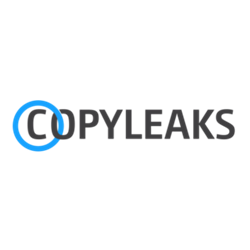Copyleaks Inc.’s Global Study of 1,200 Students Reveals a Drastic 141% Increase in Plagiarism and Academic Dishonesty
Key resulting factors include global lockdowns and transitioning to online learning caused by COVID-19

Copyleaks Inc., a leading AI and machine learning-powered plagiarism detection platform, today announced the results of its study of 1,209 students from across the globe, which found alarming increases in plagiarism brought on by the impacts of COVID-19. The report, generated via a detailed analytical assessment of millions of datasets from both pre (2019-2020) and during (2020-2021) COVID-19 periods, displays the startling effects of the global lockdowns on academic integrity.
Copyleaks helps educational institutions and students worldwide effectively minimize academic dishonesty through its advanced plagiarism detection platform, which integrates with the Institution’s choice of Learning Management System. Once integrated, educators can check student work right from within their ecosystem.
“We were hearing concerns from our University partners and members of the pedagogical community about the rising number of academic dishonesty cases across their Institutions as the global pandemic took hold,” said Alon Yamin, CEO and Co-founder of Copyleaks. “These conversations only continue to grow. As a company that works really hard to improve academic integrity standards across the globe, we felt we had the moral obligation to research the data from the submissions of thousands of students and share the outcomes with the world, all while maintaining student confidentiality and anonymity of data,” Yamin added.
The study found that since educational institutions worldwide embraced the fully online learning model in April 2020, an average of 49.6% of the work from all papers submitted by students was plagiarized.
While plagiarism in student submissions increased globally, the effect of COVID-19 induced lockdowns is more evident in some countries than others. Most of Europe and Australia saw a marginal rise in plagiarism in student assignments. France had the highest result with 124% change, followed by Australia at 122%, the UK at 119%, and Germany at 116%. In contrast, countries like Brazil and India that experiences prolonged COVID-19 lockdowns and limited technological infrastructure availability saw a more significant change in academic dishonesty, 147% and 144%, respectively.
The data from the study also shows that this past year students were found exhibiting a unique boldness in their dishonest approaches. They went beyond typical plagiarizing patterns, turning to very naive methods such as copying word-for-word. Quantitatively, the amount of plagiarism in student work grew substantially, where the identical match content was reported to have increased by 39%, alongside a 31% growth in the paraphrased content.
Historically, plagiarism in Higher Education has been a persistent problem, but with high schools also turning to remote learning, increases in the K-12 level were captured as well. High school student submissions had an average plagiarism rise of 43%, which was much higher when compared to the average 29% increase in submissions from undergraduate students.
“There is a growing need to reduce plagiarism in academia, more so now and in second and third world countries, where plagiarism was not an actively discussed topic prior to COVID-19,” Yamin continued.
***
A copy of the Copyleaks’ bi-annual media report containing the outcomes of this study can also be obtained from Copyleaks’ media page. In addition, any media questions can be directed to media@copyleaks.com, and sales queries can be sent to sales@copyleaks.com.
Copyleaks is available for academic institutions either through the Copyleaks plagiarism detection website or the LMS app directories.
About Copyleaks:
Copyleaks is an AI and machine learning-powered plagiarism detection platform that identifies and tracks plagiarized content online. Through advanced algorithms, the Copyleaks plagiarism detection platform searches content on billions of web pages, online knowledgebases, subscription-only journals, private repositories, internal databases and, some password-protected sites, and ultimately provides comprehensive and accurate results of similar content, including paraphrased content, in 100+ human languages, as well as 20+ programming languages and source code. Copyleaks provides a complete solution for Education and Businesses, including an AI-based grading platform for large volumes of essays and the ability to detect if source code has been copied with the Codeleaks tool. Copyleaks is available for educational institutes of all sizes, from private and public K-12 schools, universities, and other academic institutions.
Contact Author
ANMOL KUMAR
Copyleaks
6462703367


